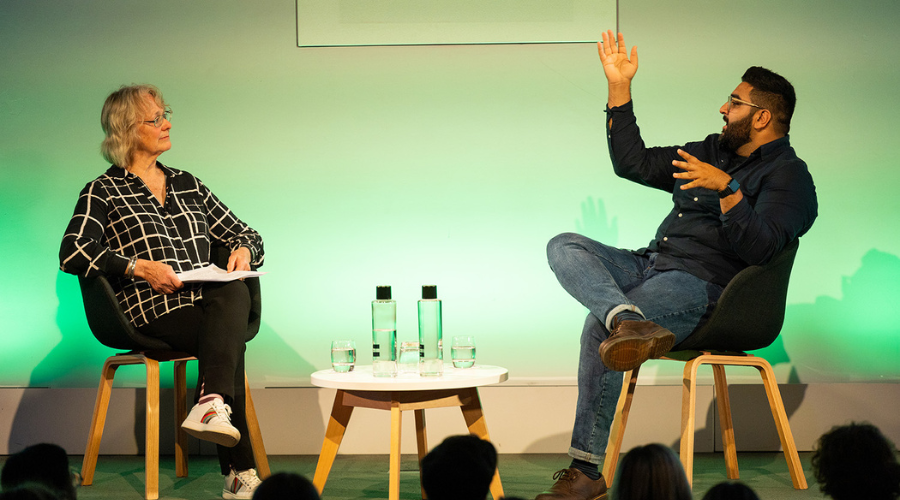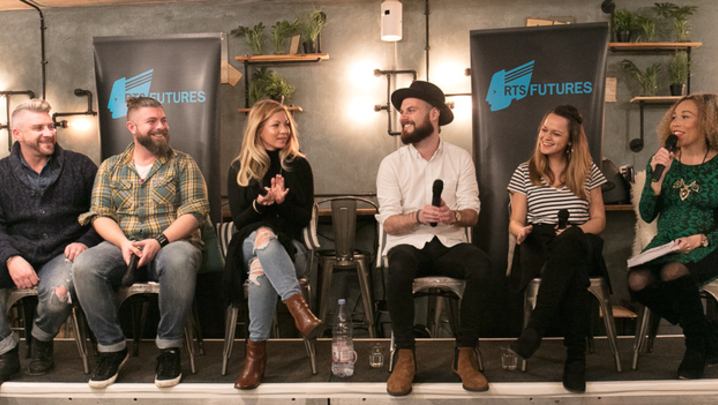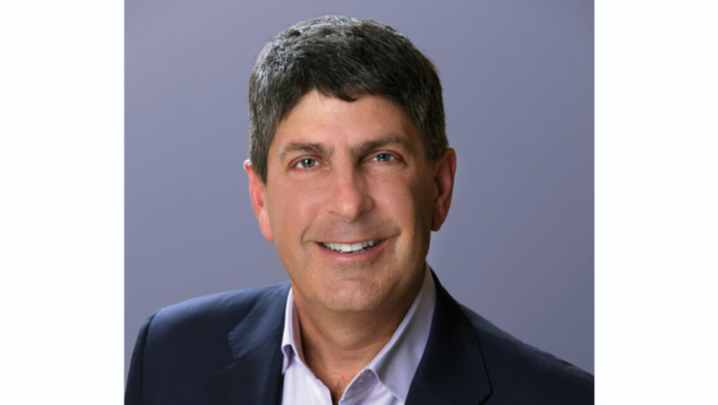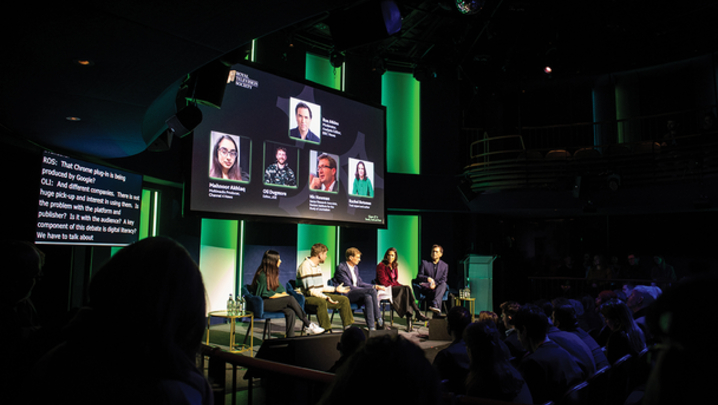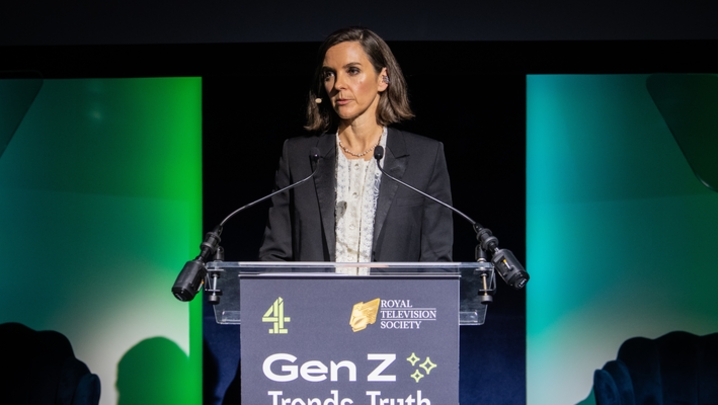Television distils a day of expert advice from leading TV practitioners at the RTS Student Masterclasses 2023
The RTS Student Masterclasses drew a crowd of more than 300 this month to hear four of the industry’s top talents talk about their careers and offer first-hand advice on how to make a start in television.
Journalism
Inzamam Rashid, a Sky News correspondent based in the north of England, told the packed Journalism masterclass: “I always wanted to do the news, [as] a reporter, a newsreader or [working] behind the scenes.”
As proof, the audience was shown a photo of Rashid in primary school, aged seven or eight and, inspired by having seen Trevor McDonald on TV, reading the news.
After university in Belfast, Rashid juggled three freelance jobs, presenting the breakfast show on a South Asian radio station, reporting for a commercial station in the daytime and doing a night shift at BBC Radio 5 Live, answering listeners’ calls – all in one day.
“I remember [how] I had to hustle and graft, the amount of time, energy and effort I had to put in, the sacrifices I had to make – I had a girlfriend who said: ‘I can’t deal with you, you’re too obsessed with news,’” he recalled. “I felt that, as a young Asian journalist, I had that extra wall put up that I needed to knock down.”
Rashid started a postgraduate degree at the University of Salford, but left when BBC Radio Manchester came knocking with the offer of a staff contract.
His first big story was the Manchester Arena bombing, investigating disturbing events at the Didsbury Mosque, which the suicide bomber had attended. In the wake of his report, which went out on TV, he received a job offer, for an initial four months, from Sky News.
Five years later, he is still there, having secured a world-exclusive interview with a Chinese diplomat accused of assault in Manchester, reported from Afghanistan in the wake of a devastating earthquake and investigated the lack of drug support for ex-offenders. Clips from all three stories were shown during the masterclass.
Summing up for interviewer Helen Scott the reason he is a journalist, Rashid said: “I want to tell people’s stories and those [of] people who don’t usually have a voice.”
Documentary
Clare Richards, who has directed numerous documentaries with sensitive themes, told her masterclass: “I’ve always been freelance and, by hook or by crook, I’ve managed to stay in work and keep making films.”
But it took a while to get started. Richards took a circuitous route into making documentaries, working in Manchester as a researcher on a Bob Monkhouse quiz and as a street caster on a Terry Christian-fronted discussion show, and then on a daytime property show in London. “I was desperate to make my own films… and the only way I thought I could do that was to get my own idea commissioned,” she told interviewer Alex Cooke.
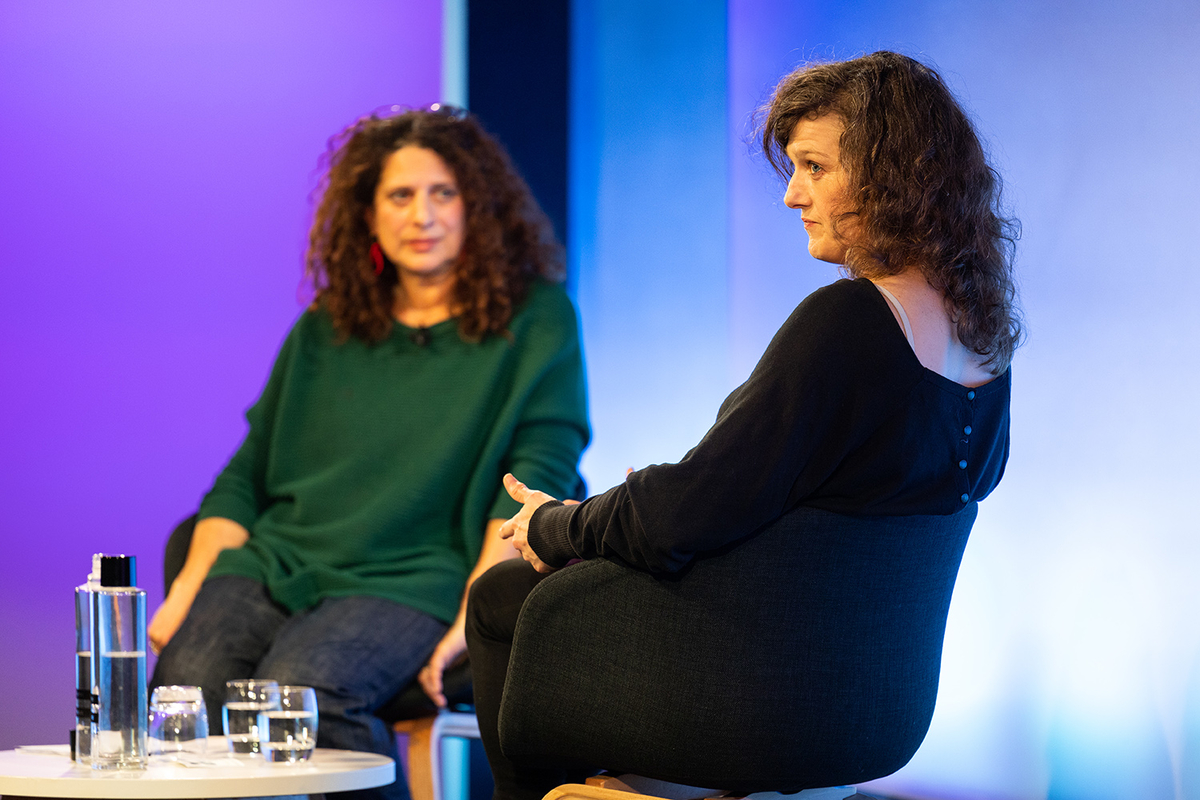
A BBC Three strand, Fresh, for first-time directors offered a way in, and Disabled and Looking for Love won her the Grierson Newcomer Award when aged just 26. With the £3,000 prize, she bought a camera and shot “anything and everything” to develop her craft and become a self-shooting director. It still proved tough to land jobs. She spent a year “trying to find directing work, even after I’d won an award and shown some talent for it,” she said.
Slowly but surely, Richards built a career in docs, usually tackling difficult subjects. The audience saw a clip from Channel 4’s Bi-Curious Me about women wanting to explore their sexuality, and a scene from the BBC Horizon film What’s the Matter with Tony Slattery? in which the comedian revealed the sexual abuse he had suffered as a child. Of the latter, Richards said: “It was a really challenging film to make [and] heartbreaking.”
Making her style of observational films requires sensitivity. Richards said: “You [can] sometimes feel as if you’re hanging around like a bad smell, [but] if people don’t want you there, they let you know, and you don’t film people who don’t want to be filmed.
“It’s about informed consent, making sure that people absolutely understand what it is you’re doing and why… Over time, you develop a relationship that you’re both committed to.”
Drama
Steve Hughes is a multi-award-winning director on a wide range of shows. These include the BBC’s Doctors, Casualty and Doctor Who, Netflix’s sci-fi series The Last Bus and PBS period saga Miss Scarlet and the Duke. In his Drama masterclass, he said that directing was more akin to the work of “an interior decorator rather than an architect”.
Hughes explained: “Directors are brought in very late in the process.… The building is already built, you just have to paint the walls a bit, change the light switches.”
During his conversation with Ben Tagoe he recalled how going to the local Odeon cinema in his native Wigan had been the equivalent of attending film school. “There wasn’t a lot to do, so we used to watch films all the time. I never thought I’d work as a film-maker.”
Nonetheless, he enrolled for a TV course in Newcastle and won an RTS award for a short film made as part of his studies. Moving to London, he was employed by BBC News as an editor, and he made short films in his spare time. A chance meeting with the BBC’s then head of drama landed him a gig on the daytime soap Doctors.
“Coming from an editing background is invaluable for a director because you learn that you can’t always get what you want, but you can get what you need,” he said.
A director’s job is half creative and half practical: “Part of it is how I am going to get this shot on time with the available resources. When you’re starting out, producers will want to know you can shoot to a schedule.
“Obviously, they will want it to look great, but they’ll need to know you can shoot 12 pages a day. On Doctors, I shot 28 pages a day, which is crazy but fantastic training.” Regarding working with actors, Hughes said: “If you get the right actors, your job is 100 times easier.”
Comedy
Ash Atalla is the CEO of Roughcut Television, one of the UK’s most successful comedy producers, whose award-winning series include The Office, The IT Crowd, Stath Lets Flats and People Just Do Nothing. He told interviewer Tim Hincks that one of the essential skills for being a successful comedy producer is knowing how to pitch a show to a commissioner.
“Never appear desperate, but appear in control of your facts. I’ve seen people fall to pieces in pitches,” was his advice to the Comedy masterclass audience. “Think of it as a chat, because the people you are trying to sell an idea to need good ideas as much as we need them to take our ideas.”
However, it goes without saying that it is important to have an idea you believe in. “If you take in something shit, then you’re in trouble,” he warned.
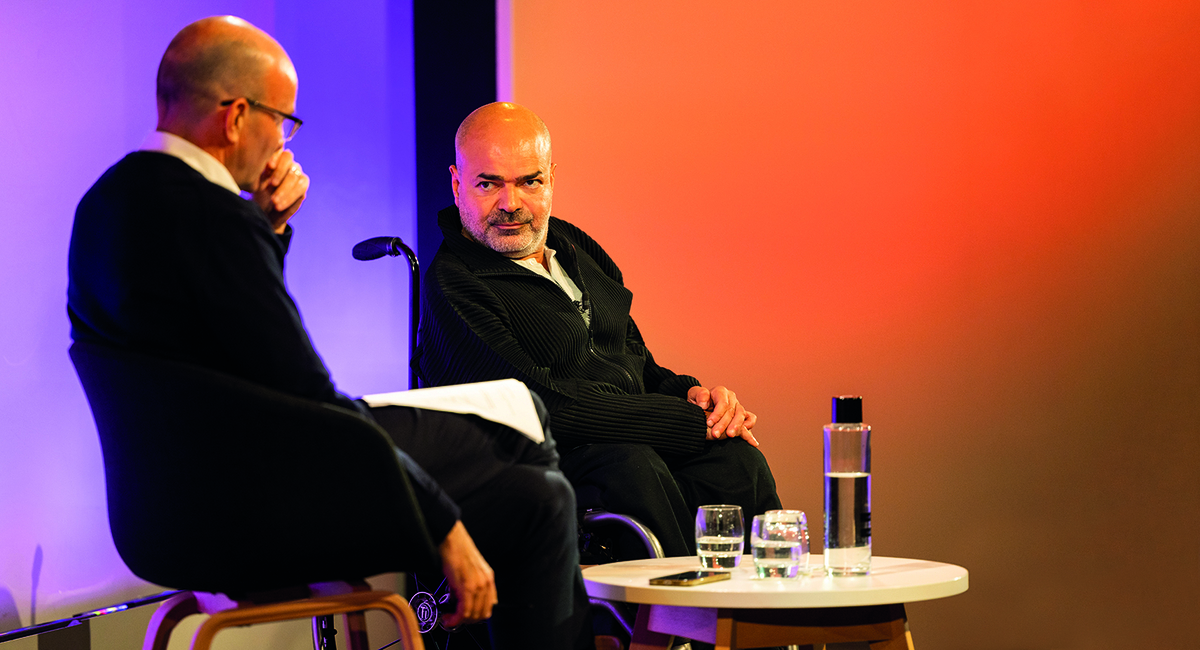
(Credit: Paul Hampartsoumian)
Atalla emphasised that creating a show takes around two years and involves “an awful lot of blood, sweat, tears and creative risk”.
A lot of the time you leave “your heart on the desk” when dealing with commissioners, he said. Being able to cope with rejection is essential. “It’s a business where if you thought about the number of times you get a ‘yes’, you’d never leave your bed in the morning. Probably it’s a 90% ‘no’ business.”
He added: “It’s a very strange, fragile process… I always say that comedy is the very opposite of maths. There is no rhyme or reason to it. You’re in a world where if you catch the wind on the right day, you might get a green light.”
Cast-iron confidence does help, as was demonstrated by Atalla’s huge belief in The Office: “We had a very strong sense that we knew what we wanted. I was quite cocky, and Ricky [Gervais] and Stephen [Merchant] wanted to direct. Not only did they want to direct but it was a deal breaker.”
For the BBC, the show had one clear advantage: “It was quite cheap to make so we flew under the radar. I don’t know if you could do that today.”
Reports by Matthew Bell and Steve Clarke. The RTS Student Masterclasses were held on 2 November at the IET in central London and chaired by media consultant Helen Scott (Journalism session), Alex Cooke, CEO of Renegade Stories, and Chair of Docfest (Documentary), screenwriter Ben Tagoe (Drama) and Tim Hincks, Co-CEO of Expectation (Comedy). The producers were Diana Muir and Helen Scott

